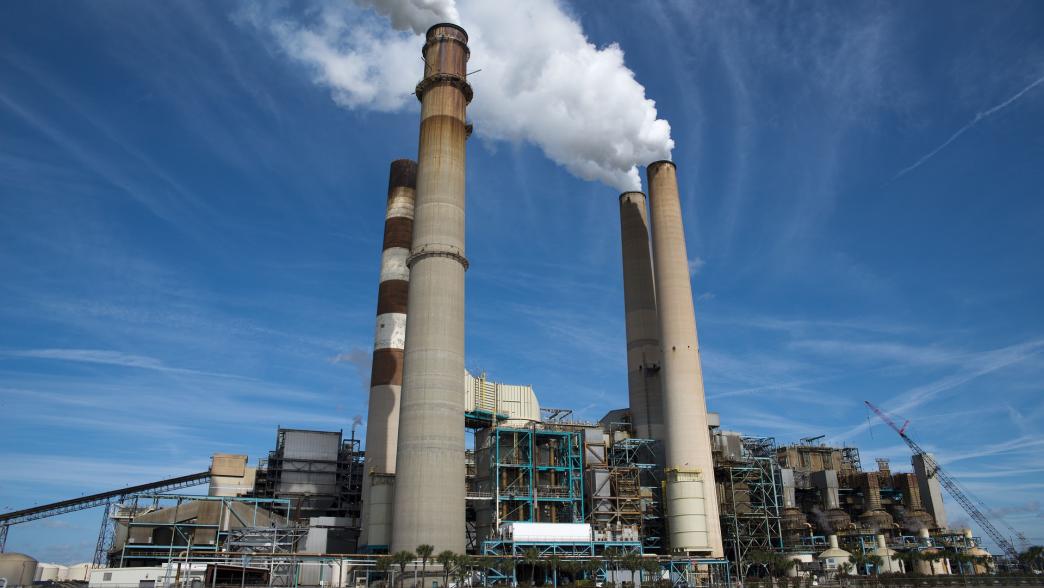
Extractive Company Disclosure of Project-Level Greenhouse Gas Emissions is Critical
Climate change and the transition to a low-carbon economy present the citizens of oil-, gas- and mineral-producing countries with both risks and opportunities. The reality is that extractive projects that emit high quantities of greenhouse gasses (GHGs) as part of their operation will become less competitive, risking that some investments will become “stranded”—i.e., economically unviable. But the Extractive Industries Transparency Initiative (EITI), a global standard for the good governance of natural resources, can play a crucial role in preventing this outcome.
Civil society organizations as well as some EITI member governments are therefore asking oil and mining companies to disclose granular, project-specific greenhouse gas (GHG) emissions data. With this information, governments can plan for the risks that the energy transition will bring to projects in which they have invested a significant amount of public finance, and citizens groups can exercise oversight of government decisions.
While the energy transition is imperative, in the near term it will have significant implications for government revenues, jobs, and business opportunities, and these must be better understood. And for that, GHG data are essential. Among all climate risk disclosures, GHG emissions are a top priority (even though there are other key disclosures as well, such as information about reserves).
Many oil and gas companies have so far resisted demands from the public and investors for more meaningfully detailed GHG disclosures, claiming that they already disclose GHG emissions data through multiple evolving disclosure initiatives. Granted, many large publicly listed extractives companies publish GHG emissions data in their own sustainability reports or through the CDP, a disclosure system for climate change information.
Most of these disclosures meet voluntary market-led standards including the recommendations of the Task Force on Climate-Related Financial Disclosures (TCFD), or the Sustainability Reporting Guidance for the Oil and Gas Industry. Moreover, governments and regulators, including the EU and the U.S. Securities and Exchange Commission, are taking steps to mandate these disclosures, while the newly formed International Sustainability Standards Board (ISSB) is developing a new set of standards to serve as a “global baseline,” with high-level backing from the G7, the G20, and finance ministers and central bank governors from over 40 jurisdictions.
But these emerging initiatives do not meet the data needs of key stakeholders; nor is the dissemination, public use, and impact of such disclosures by any means assured. The emerging disclosure architecture for GHG emissions is largely investor-focused. And while company-wide figures can help investors, these data are practically useless for government officials and citizens who seek to understand how company risks and opportunities impact specific jurisdictions and communities. For this they need project-level data.
Such granular detail would also aid investors, allowing them to see precise risks within asset portfolios. For example, project-level emissions data in Repsol’s 2021 CDP disclosures showed that one asset, the PM3 oil field in Malaysia, produced as much as 31 percent of the company’s annual scope 1 emissions in 2020. Project-level data also allows investors to understand how companies work to address their emissions. Repsol sold PM3 in 2021, a potential example of how companies may be using asset transfers to make questionable progress toward their emissions reduction targets. Acknowledging this trend, non-profit organizations Ceres and the Environmental Defense Fund recently recommended asset-level emissions disclosure as part of a set of climate principles for mergers and acquisitions in the oil and gas sector. They developed the guidance in consultation with a range of asset managers, private equity firms, banks, and oil and gas companies.
Civil society and government advocacy for project-level reporting of GHG emissions for oil, gas and mining companies has recently focused on EITI. Including such a provision in the EITI standard makes eminent sense for three reasons.
First, EITI is an extractives-specific governance standard, and this is an extractives-specific governance issue. Second, EITI focuses on government and company disclosures that policy makers and citizens can use—precisely the stakeholders that the evolving investor-focused initiatives have left out. And these EITI disclosures tend to be granular, often when relevant at the project level. Third, and perhaps most importantly, EITI has an advanced participatory implementation structure that supports national-level discussion and engagement between companies, governments and civil society—which the existing disclosure initiatives for GHG emissions reporting do not provide.
Company executives have suggested that bringing GHG emissions reporting into EITI could be duplicative. But it need not be. Among other sources of data, the EITI generally accepts routine disclosures through official websites, journals or publications. This means that most companies could comply with an EITI GHG disclosure guidance by simply adding a project-level breakdown to the GHG reporting they already make through the CDP or their own sustainability reports.
In fact, of the 10 exploration and production companies represented on the global EITI board, three—Anglo American, BHP and Newmont—do this already; while a further three—Equinor, Kosmos Energy and Royal Dutch Shell—provide country-level data that in some instances is close to project-level in detail. For these companies an EITI recommendation for project-level reporting would simply level the playing field, bringing the practices of less-forthcoming companies up to their high standards. Importantly, this would include national oil companies and privately held companies, which fly under the radar of most international reporting standards, but not EITI.
Members of the EITI board—including representatives of rich countries supporting the initiative, emerging countries, industry and civil society—are deciding on a new EITI standard which will govern the initiative for at least the next three years. They owe it to citizens and policymakers in producing countries, to investors, and to the future of the planet to ensure meaningful transparency about GHG emissions. It is time for disaggregated data disclosures of GHG emissions in EITI.
Photo by bhumann34 for Pixabay
The EITI Standard now promotes GHG emissions disclosure by companies for the first time.
Authors

Daniel Kaufmann
President Emeritus

Robert Pitman
Senior Governance Officer
